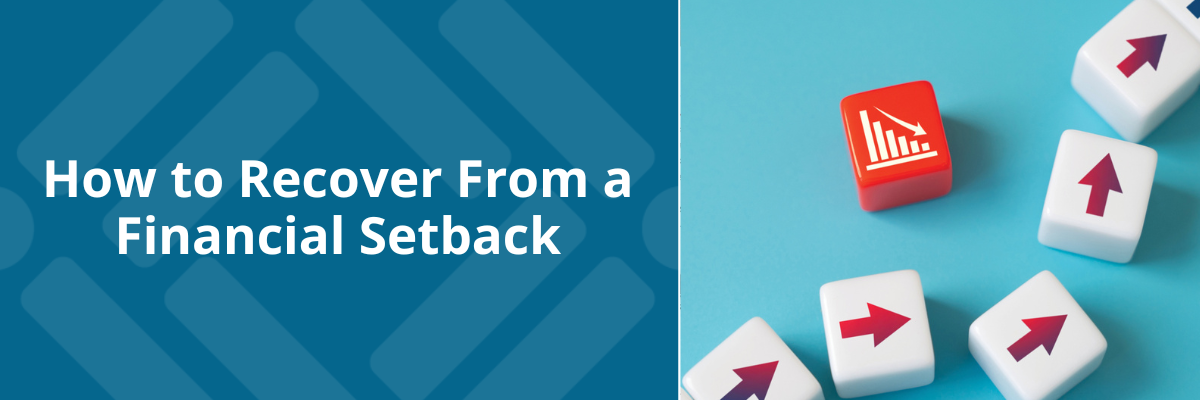Consumer debt can be one of the biggest challenges to realizing good financial wellness. Credit...
How to Recover From a Financial Setback

Financial setbacks are an unfortunate reality that almost everyone faces at some point in life. The good news is, you can recover and bounce back stronger. Here’s a guide on how to regain control of your finances after a setback, reduce stress and rebuild a solid financial foundation.
1. Assess the situation honestly
The first step in financial recovery is understanding its scope. This requires an honest assessment of your finances. List all your debts, calculate your monthly expenses and then review your assets. Knowing your financial situation can relieve some uncertainty and create a foundation for moving forward.
2. Prioritize your expenses
When you’re in financial recovery mode, prioritizing expenses is crucial. Focus on needs over wants to make the most of your resources:
- Essential expenses like housing, food and utilities should always come first.
- Debt payments should be prioritized based on interest rates and minimum payments. Paying off high-interest debt can prevent it from growing further.
- Non-essential expenses like dining out, subscriptions and entertainment should be minimized or cut out temporarily.
This short-term budget shift may feel restrictive, but it’s a powerful way to free up funds that you can use toward debt reduction or savings.
3. Create a debt repayment plan
If your setback has left you with debt, devising a repayment plan can help you regain financial stability. Consider strategies like:
- The debt snowball method. Focus on paying off the smallest debt first, then move to the next one. This can provide a sense of progress and motivation.
- The debt avalanche method. Prioritize debts with the highest interest rates first. While it may take longer to see progress, this approach can save more money over time.
4. Build an emergency fund
If you’ve been through a financial setback, your emergency fund has likely been depleted and needs to be built up from scratch. While it may seem impossible to save while recovering, even small contributions can add up over time. Aim for an initial goal of at least $500-$1,000, then gradually work toward saving three to six months’ worth of expenses, as recommended by financial experts.
5. Consider earning extra income
Supplementing your primary income can accelerate your recovery and reduce financial stress. There are several ways to earn extra income, depending on your skills and schedule. First, you can freelance or do gig work. Online platforms, like Fiverr and Indeed, offer opportunities in fields ranging from writing to graphic design and consulting, while ride-sharing platforms, like Uber and Lyft, allow you to accept gigs on your schedule. You can also work part-time in retail or at other seasonal positions. Finally, you can pad your pockets by selling unused items you no longer need on platforms like eBay.
6. Set new financial goals
A positive mindset is critical during financial recovery. Shifting your focus from the setback to the future can help you stay resilient and motivated. Set achievable, short-term financial goals, such as paying down a specific amount of debt each month or saving a set amount each paycheck.
Use our guide to bounce back better from a financial setback.



